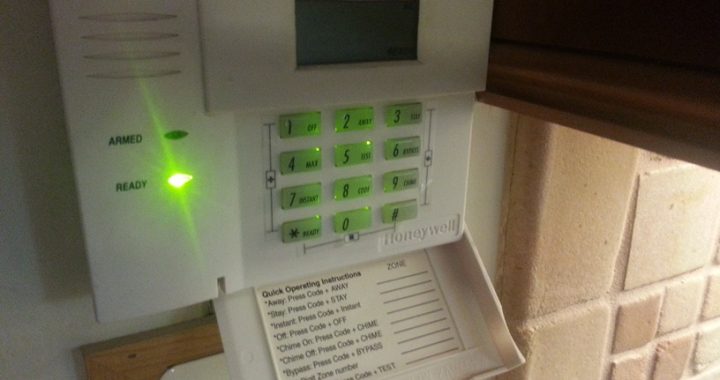Exploring the Impact of Blockchain Beyond Cryptocurrency

Blockchain technology, often associated solely with cryptocurrency, has emerged as a transformative force across a broad spectrum of industries. Its unique characteristics—transparency, decentralization, and immutability—make it an invaluable tool in addressing complex challenges and fostering innovation. This article delves into how blockchain is reshaping industries beyond digital currencies, illustrating its vast potential to redefine systems and practices.
Enhancing Supply Chain Transparency
The intricate networks that make up supply chains often lack transparency, leading to inefficiencies, fraud, and mismanagement. Blockchain addresses these issues by providing an immutable ledger that records every transaction or movement within a supply chain.
For example, in the food industry, blockchain enables end-to-end traceability of products, from farm to consumer. This capability allows businesses to quickly identify the source of contamination during recalls, minimizing harm and costs. Similarly, luxury goods manufacturers use blockchain to authenticate products, ensuring consumers receive genuine items and protecting their brand reputation.
By fostering transparency, blockchain builds trust among stakeholders, including suppliers, manufacturers, retailers, and consumers, while optimizing operations.
Revolutionizing Healthcare Record Management
In healthcare, maintaining accurate, secure, and accessible patient records is a longstanding challenge. Blockchain technology provides a decentralized system where patient data can be stored securely and accessed only by authorized individuals or organizations.
This approach enhances patient privacy while enabling seamless data sharing among healthcare providers. For instance, a patient visiting multiple specialists can have their medical history easily accessible, reducing redundancies and improving care coordination. Additionally, blockchain helps verify the authenticity of pharmaceutical products, combating the global issue of counterfeit medicines.
By safeguarding sensitive information and improving operational efficiencies, blockchain is advancing the healthcare industry toward more reliable and patient-centric care.
Transforming Real Estate Transactions
The real estate industry, long burdened by complex paperwork and lengthy processes, stands to benefit significantly from blockchain. Through smart contracts, blockchain automates and streamlines transactions, reducing the need for intermediaries and minimizing the risk of fraud.
Smart contracts are self-executing agreements with terms written directly into code, ensuring that all parties fulfill their obligations before the transaction proceeds. For example, when purchasing property, blockchain can verify ownership, facilitate payment, and transfer the deed—all securely recorded on the ledger.
This innovation not only speeds up transactions but also reduces costs and enhances trust among buyers, sellers, and lenders.
Driving Efficiency in Government Services
Governments worldwide are exploring blockchain to improve service delivery, enhance transparency, and combat corruption. By digitizing records and processes on a secure ledger, blockchain simplifies administrative tasks while ensuring accountability.
For instance, blockchain-based voting systems provide a tamper-proof method for casting and counting votes, reducing concerns about election fraud. Similarly, land registries benefit from blockchain’s immutability, which eliminates disputes over property ownership and ensures accurate records.
These applications illustrate blockchain’s potential to foster trust in public systems while making governance more efficient and citizen-focused.
Reimagining Identity Management
Identity verification is a cornerstone of modern society, yet traditional methods often involve complex processes and centralized databases prone to breaches. Blockchain introduces a decentralized identity management system, enabling individuals to control their personal data.
With blockchain, individuals can create digital identities verified by cryptographic algorithms. These identities can be used to access services, sign contracts, or verify credentials without exposing sensitive information. For example, in financial services, blockchain enables streamlined Know Your Customer (KYC) processes, reducing time and costs while ensuring compliance.
This approach not only enhances security but also empowers individuals by giving them greater control over their information.
Advancing Renewable Energy Solutions
Blockchain is playing a pivotal role in the energy sector by facilitating decentralized energy grids and promoting renewable solutions. Through peer-to-peer energy trading platforms, individuals can buy and sell excess energy generated from renewable sources like solar panels.
These transactions are recorded on a blockchain, ensuring transparency and fairness without the need for intermediaries. Additionally, blockchain aids in certifying renewable energy credits, helping organizations achieve sustainability goals and regulatory compliance.
By fostering innovation and collaboration, blockchain is helping reshape the energy landscape toward a more sustainable future.
Enabling Fair Trade in Agriculture
Farmers and agricultural cooperatives often face challenges in receiving fair compensation due to intermediaries and lack of transparency. Blockchain technology addresses these issues by creating direct connections between producers and consumers.
For instance, blockchain platforms enable traceable transactions where consumers can verify the source and quality of agricultural products. Smart contracts ensure that payments are made instantly upon fulfillment of agreed terms, eliminating delays and enhancing trust.
This application demonstrates blockchain’s ability to empower small-scale farmers and promote ethical trade practices across the agricultural value chain.
Challenges and Ethical Considerations
While blockchain offers transformative potential, its adoption is not without hurdles. Scalability, energy consumption, and regulatory ambiguity pose challenges that industries must address to realize its full benefits. Moreover, ethical considerations surrounding data privacy and accessibility must be carefully managed to ensure that blockchain solutions are inclusive and responsible.
Collaboration among technologists, regulators, and industry leaders will be crucial in navigating these complexities and fostering blockchain’s growth responsibly.
Looking Ahead
Blockchain is far more than the foundation of cryptocurrency. Its applications across industries demonstrate its capability to redefine traditional systems, bringing transparency, efficiency, and trust to the forefront. As industries continue to explore and embrace this technology, the opportunities for innovation and progress are boundless. By addressing challenges and fostering collaboration, blockchain is poised to play a pivotal role in shaping the future of global industries.

 What Happens After Your Security Alarm Goes Off?
What Happens After Your Security Alarm Goes Off?  How Make-Good Services Ensure Smooth Lease Transitions and Compliance
How Make-Good Services Ensure Smooth Lease Transitions and Compliance  The Shift from Concept to Real-World 3D Build Projects
The Shift from Concept to Real-World 3D Build Projects  Effortless Office Moves in Melbourne
Effortless Office Moves in Melbourne  SEBI’s Latest Regulations for Investment Advisory Services in India
SEBI’s Latest Regulations for Investment Advisory Services in India  Exploring the Most Effective Business Services for Entrepreneurs
Exploring the Most Effective Business Services for Entrepreneurs  The Evolution of Industry: From the Industrial Revolution to the Age of Automation
The Evolution of Industry: From the Industrial Revolution to the Age of Automation